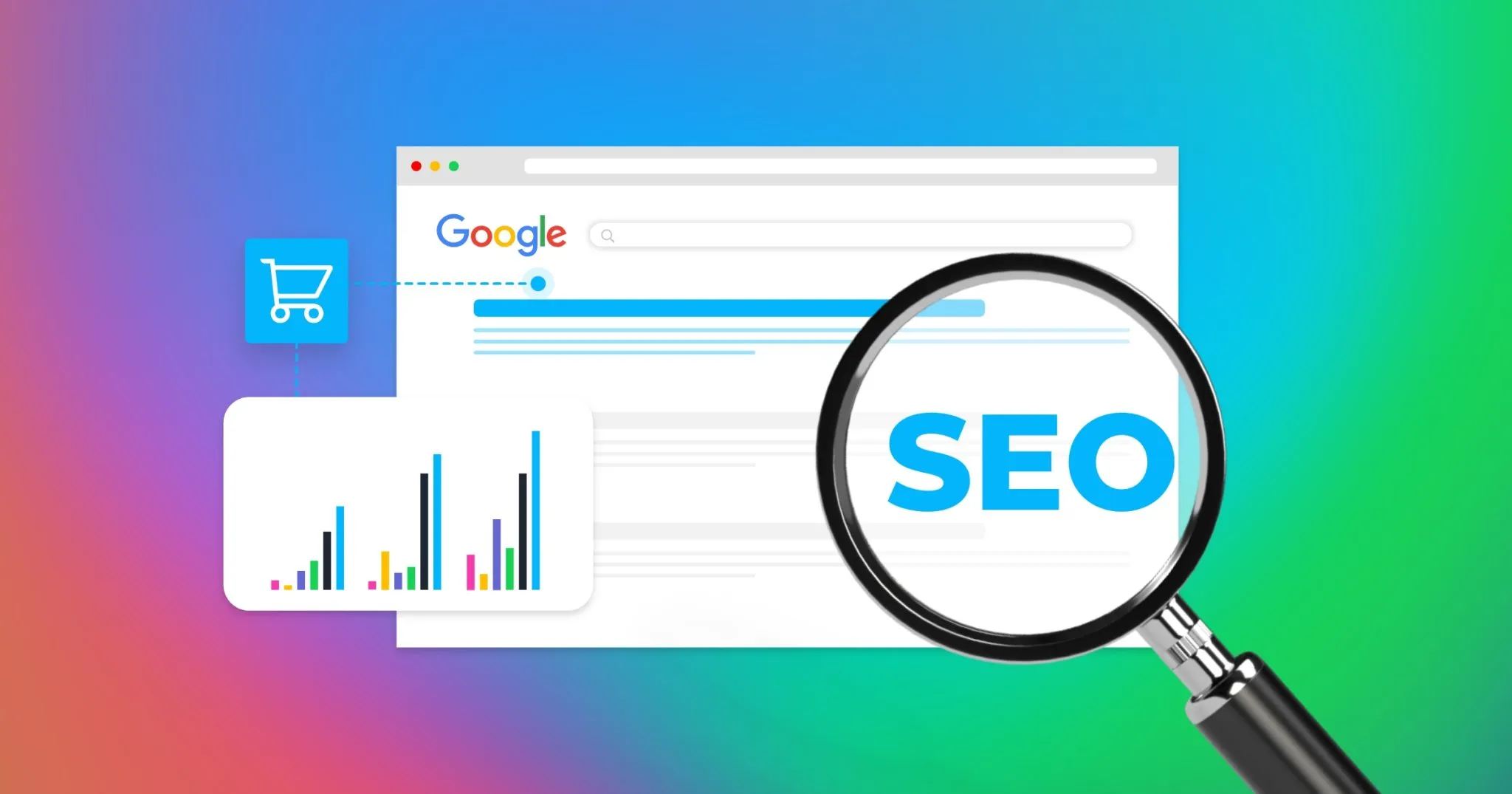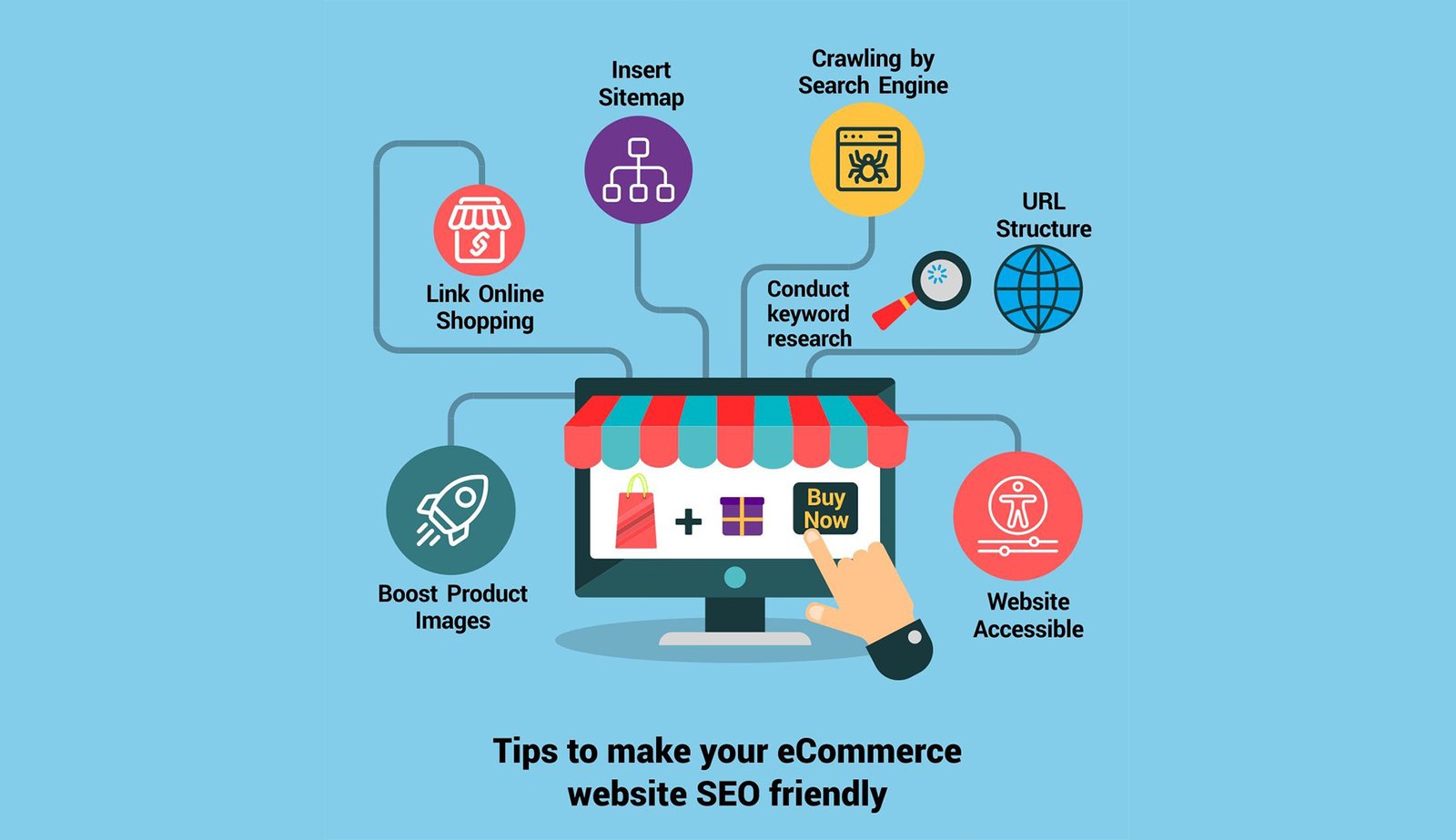
The realm of online shopping is growing rapidly, thanks to the quick, convenient and comfortability it offers. Given its growth, it also brings competition, and visibility is everything. eCommerce SEO is a practice done to claim the visibility, branding and success of each ecommerce website or store deserves. To tackle challenges like competition, a hike in KPI’s implementation of SEO is a real help. The article here is a brief but detailed guide on eCommerce SEO. You will find key information and get your questions answered for your eCommerce SEO campaign.
What is eCommerce SEO?

Let’s begin with the most common question about eCommerce SEO. E-commerce SEO is a specialised SEO in eCommerce that consists of strategies and tactics similar to traditional SEO to improve a product or service-based website’s organic performance in search. If you’re having doubts learning yourself, you can pick the best digital marketing courses in Calicut to help you out
How Does eCommerce SEO work?
eCommerce SEO works somewhat similarly to traditional SEO with a few piquant changes. All you have to do is implement the steps and practices of traditional SEO in eCommerce. Here’s how eCommerce SEO works in detail.

- Keyword Research: Like traditional or regular SEO, Keyword research is a significant part when it comes to eCommerce SEO practices. Identify high-intent keywords with the help of tools like Google Keyword Planner, Ahrefs and Ubersuggest to measure volume and difficulty.
- On-page optimisation: Do proper title tags and meta descriptions for products and their category pages. Use header tags properly as well (such as H1, H2, H3). Make sure to include secondary keywords with carefully crafted product descriptions, with an image descriptive file name for image optimisation. Other on-page optimisation includes alt attributes and image search, along with internal linking with the help of a blog to distribute link equity and guiding users.
- Technical SEO: It is important when it comes to eCommerce SEO. Technical SEO practices like Site speed achieved by optimising images and a content delivery network, and minimal code to improve load times. Other key practices include making the website mobile-friendly and responsive, accompanied by XML Sitemaps and Robots.txt to keep search engines informed about you. Structured data or Schema Markup by implementing product or service reviews as trust signals with rich snippets and a decent URL structure.
- Content Marketing: Content marketing, especially with user-generated content online, is a great way to enhance your practices of SEO in ecommerce. By blogging on content like guides, how-tos and more or generating genuine reviews written by users to establish your eCommerce business. Write FAQ’s and create videos to build trust.
- Off-page SEO: Getting to the off-page SEO part, it consists of link building to gain authority and collaborating with influencers. Ensure to partner with relevant influencers that fit your niche. Leverage your social media to gain more visibility and build a loyal and consistent audience.
Why eCommerce SEO is useful?
As you are aware, what is eCommerce SEO, and how does it work? Let’s find out the benefits of eCommerce SEO in short.
- Cost-effective traffic: Due to the rise in organic traffic it brings people without any click fee or paid ads.
- High Purchase Intent: People who organically find your product or service page are more likely to purchase compared to others, especially casual browsers.
- Long-term ROI: By maintaining high ranks and traffic, your eCommerce website will benefit you in the long run
- Builds credibility: All the factors and steps done right lead to an established brand increasing or adding to the brand’s credibility.
When to Implement eCommerce SEO?
Having good knowledge of eCommerce SEO, like how it works and the best eCommerce SEO practices, would be useful unless you know when to use it. To make the best out of the eCommerce SEO practices, refer to when the right moment to use it is.
- At the initial if a website isn’t developed or is about to be, ensure this opportunity isn’t wasted and implement seo in ecommerce in site architecture and at the initial product setup.
- Prior to peak seasons like holidays or festivals, pre-plan your eCommerce SEO for the best results. Instead of right before the event, pre-planning serves as a better plan.
- After adding new products or services is the next time to implement or adjust your SEO practices in Ecommerce.
- Conduct a sales audit, and in case of any issues, this is the moment you must start working again on ecommerce seo.
Overall, ensure each page follows proper ecommerce seo practices to ensure everything is done right and you haven’t missed out on anything.
Who Can Use eCommerce SEO?
Right, after knowing when to implement seo in eCommerce, it is rightfully necessary to know who can use it. Any brand endorsing a product or service can implement SEO in an eCommerce online store, but some stand out or take advantage; they are:
- Small online shops compete with larger brands
- Marketplaces that are established so you can gain leverage,
- Direct-to-consumer brands can or most likely should implement eCommerce SEO
- B2B eCommerce platforms can also take advantage of eCommerce SEO practices.
Key Benefits of eCommerce SEO
Finally, aside from its uses why it is necessary to explore the benefits related to using or implementing ecommerce seo. Though among many, here are the top benefits associated with SEO in eCommerce.
- Increase in organic revenue helping ecommerce brands and businesses grow without spending high on ads or cost per click.
- A well-implemented ecommerce SEO enables a better user experience, leading to more positive KPI’s
- It also gives an advantage over competitors
- With the seo in eCommerce and the analytics that come with it, you can make data-driven decisions that might benefit your business.
Conclusion
In summary, eCommerce comes with complications while SEO is implemented, like issues due to duplicate content and more, but the benefits outweigh the challenges, and therefore seo practices in ecommerce could bring significant changes to an ecommerce brand or business. As you are now aware of what ecommerce seo is, its benefits and other factors like when to use it and who can use it, you can exploit and grow by following the best ecommerce SEO practices. Additionally, understand and plan as well as do things your way to maximise the outcome to your advantage.
Aviv Digital Academy is one of the leading Digital marketing course in Kochi. We offer a wide variety of globally recognized certification programs that include SEO, SEM, SMM, Email Marketing and Inbound Marketing courses. Our programs provide a comprehensive Guide to digital marketing, ensuring you master essential skills. For more details, Contact us at: +91 8156998844







